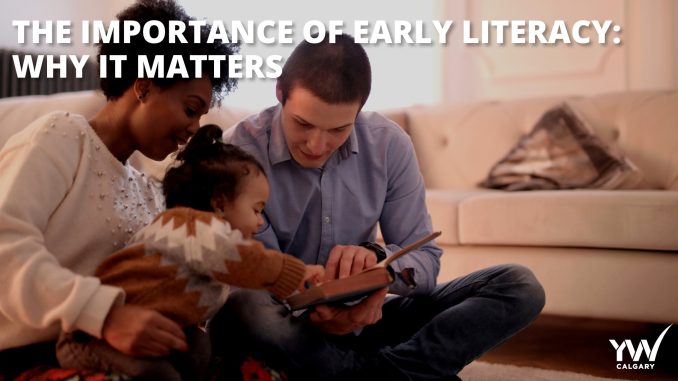
In the grand tapestry of human development, few threads are as foundational and far-reaching as early literacy. Long before children step into formal classrooms, their brains are actively engaged in constructing the neural pathways necessary for language comprehension, print awareness, and the intricate process of reading and writing. The period from birth through age five is a critical window, a time of unparalleled cognitive plasticity where experiences with language and books lay the essential groundwork for all subsequent learning. Neglecting this crucial developmental stage carries profound long-term consequences, underscoring why the importance of early literacy cannot be overstated; it is the bedrock upon which future academic success, social-emotional well-being, and ultimately, economic prosperity are built.
One of the most immediate and profound impacts of early literacy is its direct correlation with **academic achievement across all subjects**. Children who are exposed to a rich language environment and pre-reading activities in their formative years tend to enter school with a significantly larger vocabulary, stronger phonological awareness, and a greater understanding of print concepts. This foundational advantage enables them to more easily decode words, comprehend texts, and engage with complex ideas. A child who can read proficiently by third grade is far more likely to succeed in later grades, as reading becomes the primary tool for learning across the curriculum, from science and history to mathematics. Conversely, those who struggle with early literacy often face an uphill battle, falling further behind their peers and experiencing a cumulative disadvantage that can persist throughout their educational journey, leading to decreased engagement and higher dropout rates.
Beyond mere academic performance, early literacy profoundly influences a child’s **cognitive development and critical thinking skills**. Engaging with books and stories exposes young minds to diverse perspectives, complex narratives, and new concepts, stimulating their imagination and fostering abstract thought. Reading encourages children to make predictions, infer meanings, and connect ideas, all of which are fundamental components of critical thinking. For example, a child listening to a story about different animals might begin to categorize them, understand their habitats, and even grasp basic ecological concepts. This early exposure to structured narratives also helps develop logical reasoning and problem-solving abilities, preparing their brains to analyze information and synthesize knowledge in more sophisticated ways as they grow older.
Moreover, the benefits of early literacy extend significantly to a child’s **social and emotional development**. Sharing books and engaging in conversations about stories fosters strong bonds between children and caregivers, building a sense of security and attachment. Picture books often explore themes of friendship, empathy, and overcoming challenges, providing a safe space for children to process emotions, understand social cues, and develop their own emotional vocabulary. A child who can articulate their feelings and understand the perspectives of others, skills honed through storytelling and literary exposure, is better equipped to navigate social interactions, build healthy relationships, and manage their own emotional landscape. This emotional intelligence is as crucial for lifelong success as any academic skill.
From a broader societal and economic perspective, investment in early literacy yields substantial long-term returns. A populace with strong foundational literacy skills is better prepared for the workforce, more adaptable to technological advancements, and more likely to participate actively in civic life. In Germany, for instance, where high educational standards are a point of national pride, the emphasis on early language development and reading readiness in *Kindergärten* (preschools) and early primary grades is seen as crucial for maintaining a skilled workforce and fostering innovation. Individuals with limited literacy often face higher rates of unemployment, lower earning potential, and greater reliance on social services, creating significant economic burdens on society. Conversely, a highly literate population is more productive, contributes more to the tax base, and drives economic growth, making early literacy a vital component of national prosperity.
Finally, and perhaps most importantly, early literacy cultivates a **lifelong love of learning**. When reading is introduced as a joyful, engaging activity, rather than a laborious chore, children are more likely to develop an intrinsic motivation to explore knowledge independently. The discovery of new worlds through books, the thrill of understanding complex ideas, and the satisfaction of expressing oneself through writing can ignite a passion for continuous learning that extends far beyond formal schooling. This love of learning is arguably the most valuable gift an educational system can bestow, ensuring that individuals remain curious, adaptable, and intellectually vibrant throughout their lives.
In conclusion, the importance of early literacy cannot be overstated. It is the fundamental building block for academic success, the catalyst for cognitive and critical thinking development, a cornerstone of social-emotional well-being, and a powerful driver of societal and economic progress. Investing in comprehensive early literacy programs, supporting parents in fostering rich language environments at home, and recognizing the critical window of opportunity in a child’s early years are not just educational priorities; they are essential commitments to building a brighter, more equitable, and more prosperous future for individuals and nations alike.